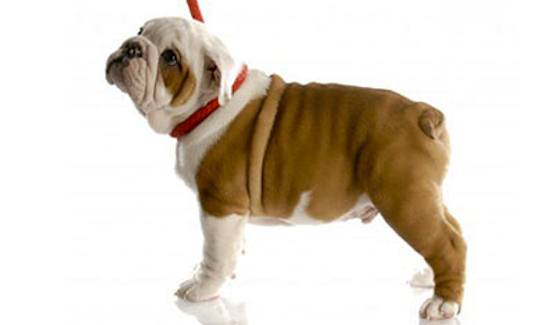- MENU
- HOME
- SEARCH
- WORLD
- MAIN
- AFRICA
- ASIA
- BALKANS
- EUROPE
- LATIN AMERICA
- MIDDLE EAST
- United Kingdom
- United States
- Argentina
- Australia
- Austria
- Benelux
- Brazil
- Canada
- China
- France
- Germany
- Greece
- Hungary
- India
- Indonesia
- Ireland
- Israel
- Italy
- Japan
- Korea
- Mexico
- New Zealand
- Pakistan
- Philippines
- Poland
- Russia
- South Africa
- Spain
- Taiwan
- Turkey
- USA
- BUSINESS
- WEALTH
- STOCKS
- TECH
- HEALTH
- LIFESTYLE
- ENTERTAINMENT
- SPORTS
- RSS
- iHaveNet.com: Pets
by Stacy Braslau-Schneck

Puppies' brains are like sponges: ready to soak up knowledge. Some of that is obedience-type knowledge, like how to sit or come when cued. Any class that teaches a few cues with positive reinforcement will help your puppy learn obedience. The instructor will help you set up management systems in your interactions so your puppy doesn't learn to practice unwanted behavior.
Perhaps even more important, your young puppy is ready to soak up worldly knowledge, such as what to expect to encounter in life -- including strange dogs, strange people, new buildings, floors, sounds, car rides, different flavors of treats and more. Your dog has a "socialization window" during which he forms his idea of what's expected and acceptable in a dog's world. This window starts to close down at 12 to 16 weeks. To prepare your dog for success, he needs to experience as much as possible in that time.
Prerequisites
Most training schools require that your dog is a minimum age of 8 weeks and has received some vaccinations (or titer tests). And of course, your puppy should be in good health. The American Veterinary Society of Animal Behavior (AVSAB) came out with a position paper that states, "Puppies should receive a minimum of one set of vaccines at least seven days prior to the first class and a first deworming, and should be kept up-to-date on vaccines throughout the class."
Most behaviorists believe your pup is at more risk of bad behavior from lack of socialization than of bad health from exposure to other dogs. Dog trainers and behaviorists worry in particular about fear aggression, a condition where dogs that don't get comfortable with meeting new dogs (or people) can develop a fear of making new acquaintances, resulting in aggression.
What to Expect
A well-run kindergarten class for your puppy will have some on- and off-leash time -- assuming that the puppies in the class are appropriate play partners. The off-leash time should not be just a free-for-all. The dogs should be closely supervised, with shyer puppies protected and bolder ones prevented from learning the joys of bullying. Very small puppies might be separated from the larger or rougher pups. The instructor should use off-leash time to help the students learn to read dog body language.
The on-leash time should be focused on teaching some basic commands (such as "Sit," "Leave it," "Drop it" and "Come") and skills (such as loose-leash walking, greeting politely and waiting at doors). Dogs that are heading toward a competition career can start learning the skills of their sports, like heeling (for obedience and Rally-O) and how to navigate strange surfaces (for agility).
Bottom line: If your puppy is healthy and has started his vaccination program, you both will benefit greatly from puppy kindergarten!
Available at Amazon.com:
AUTOS | HOBBIES | EDUCATION | FAMILY | FASHION | FOOD & RECIPES | HOME DECOR | RELATIONSHIPS | PARENTING | PETS | TRAVEL | WOMEN
PET STORIES and PET ARTICLES ...
- Is Your Dog Cut out for Field Trials?
- Should You Crate-train Your Puppy?
- How to Play Soccer With Your Dog
- The Best Way for Your Dog to Ride in the Car with You
- Good Dog Park Etiquette
- What Is Freestyle Dancing With Dogs?
- Canicross: An Easier Way to Run With Your Dog
- Reading Your Dog's Body Language
- Kitten Kindergarten
- Tips to Keep Your Dog Safe While Flying
- Keep Your Dog Warm in the Winter
- Scottish Deerhound: The Ideal Exercise Buddy
- Teach Your Dog to Fetch
- Is Your Dog Bored?
- 7 Ways to Pamper Your Cat
- The Best Games to Play With Your High-Energy Dog
- Dog Feeding Mishaps Corrected
- How to Succeed at Off-Leash Dog Play
- ID Your Relationship With Your Cat
- Photographing Your Elusive Feline
- How to Keep Your Pet Safe During the Holidays
- When Good Dogs Turn Bad
- From Finicky Fido to Chowhound Charlie
- Insure Your Kitty's Health
- Unconditional Love: My Cat Forgives Me Every Day
- From Feline to Family Member
- Is Water From a Christmas Tree Stand Harmful to Cats?
- A Day in the Life of a Sheepherding Dog
- Go on a Desert Retreat With Your Dog
- Dog Food Goes Natural and Holistic
- Determining a Food Allergy
- Exercise Gone to the Dogs
- Find the Right Sport for Your Dog
- Make Your Dog a Part of Your Wedding
- Hydrotherapy Helps Dogs Get in Shape
- How Your Cat Says 'I Love You'
- Lost Cats Found
- De-stress Veterinary Visits for Your Cat
- Keeping Cat Food Fresh
- Second-Hand Cat, First-Rate Pet
Copyright ©
Pets | Dogs: Is Your Puppy Ready for School?